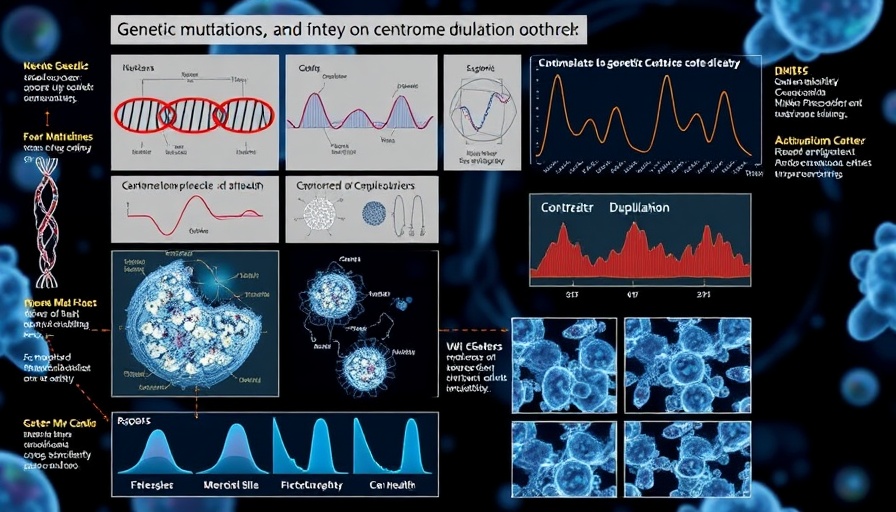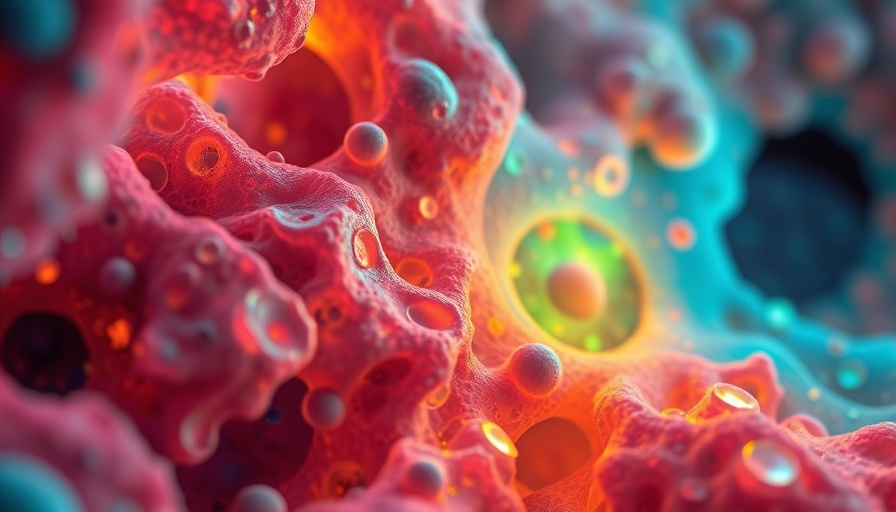
Unlocking the Potential of Geniposidic Acid for Heart Health
As our understanding of health continues to evolve, so too does our approach to preventing and treating conditions like hyperlipidemia, a major risk factor for cardiovascular diseases. Recent research has spotlighted geniposidic acid (GPA), a compound derived from herbal sources, as a potentially effective solution. This study, integrating metabolomics and network pharmacology, reveals that GPA can counteract the effects of a high-fat diet in mice, offering intriguing insights into its mechanisms.
How Does Geniposidic Acid Work?
The research highlights GPA's ability to lower lipid levels effectively. Mice subjected to a high-fat diet showed notable improvements after being treated with GPA, mirroring the effects of lovastatin, a common medication used for lowering cholesterol. With more than 40 differential metabolites identified, GPA appears to orchestrate a complex metabolic response involving essential pathways such as the TCA cycle and glycolysis.
The Science Behind the Findings
Utilizing advanced techniques such as NMR- and MS-based metabolomics, researchers established metabolic profiles that illustrate how GPA interacts with critical biochemical pathways. The study suggests that GPA may reverse the negative metabolic consequences of high-fat diets, promoting healthier cellular processes essential for maintaining cellular health and overall vitality.
Exploring the Benefits of Integrative Approaches in Medicine
The shift toward using plant-based therapies aligns with a broader trend in medicine—recognizing the potential of natural products to enhance health. Unlike synthetic medications, which often carry side effects, GPA represents a more holistic approach, offering a path to improve lipid levels while promoting absolute cellular rejuvenation.
Future Implications for Regenerative Medicine
The implications of this research extend beyond mere lipid management. By harnessing the power of compounds like GPA, there exists an opportunity to advance regenerative medicine. Future studies could deepen our understanding of GPA's roles in autophagy and cellular repair, potentially leading to broader applications in anti-aging therapies.
Join the Conversation
As we continue to explore innovative ways to bolster our health through scientific inquiry, understanding the mechanisms of natural compounds like GPA is crucial. There is a growing recognition that enhancing our body’s natural processes could very well lead to healthier, longer lives.
If you are intrigued by these findings, consider staying informed about developments in integrative health approaches and their roles in combating age-related conditions.
 Add Row
Add Row  Add
Add 




Write A Comment